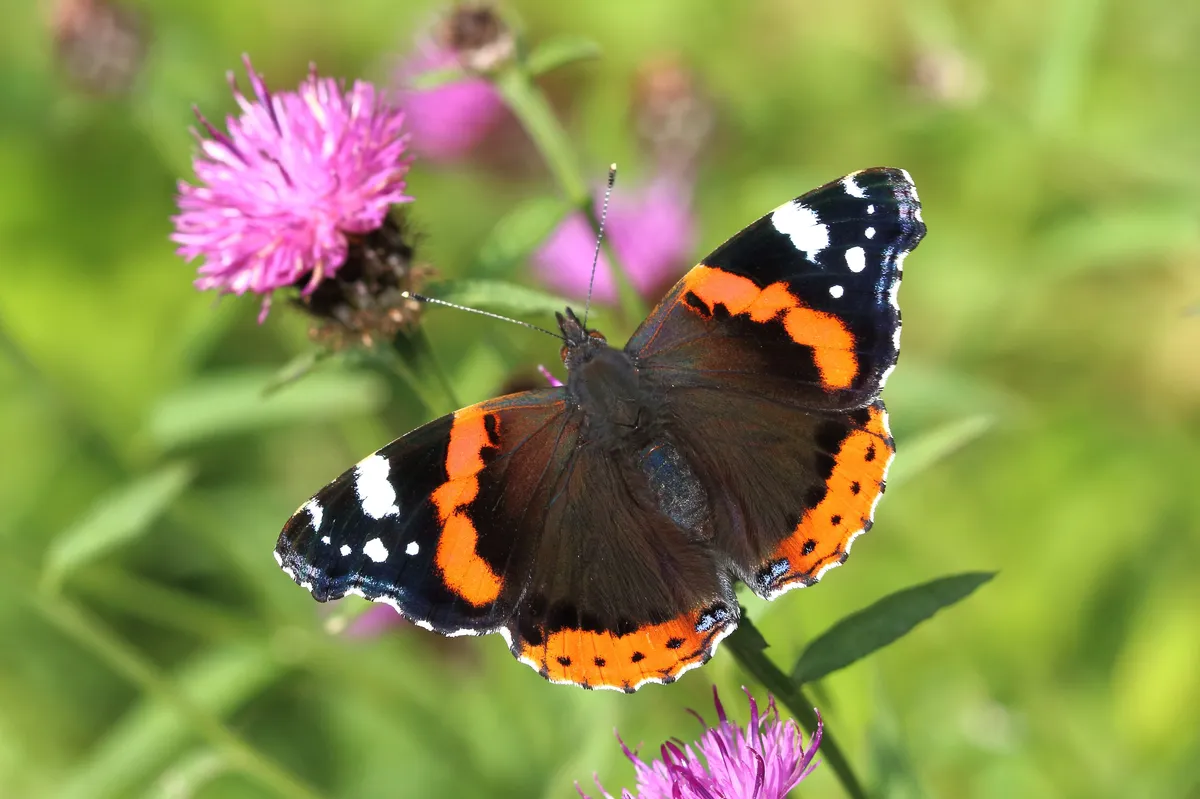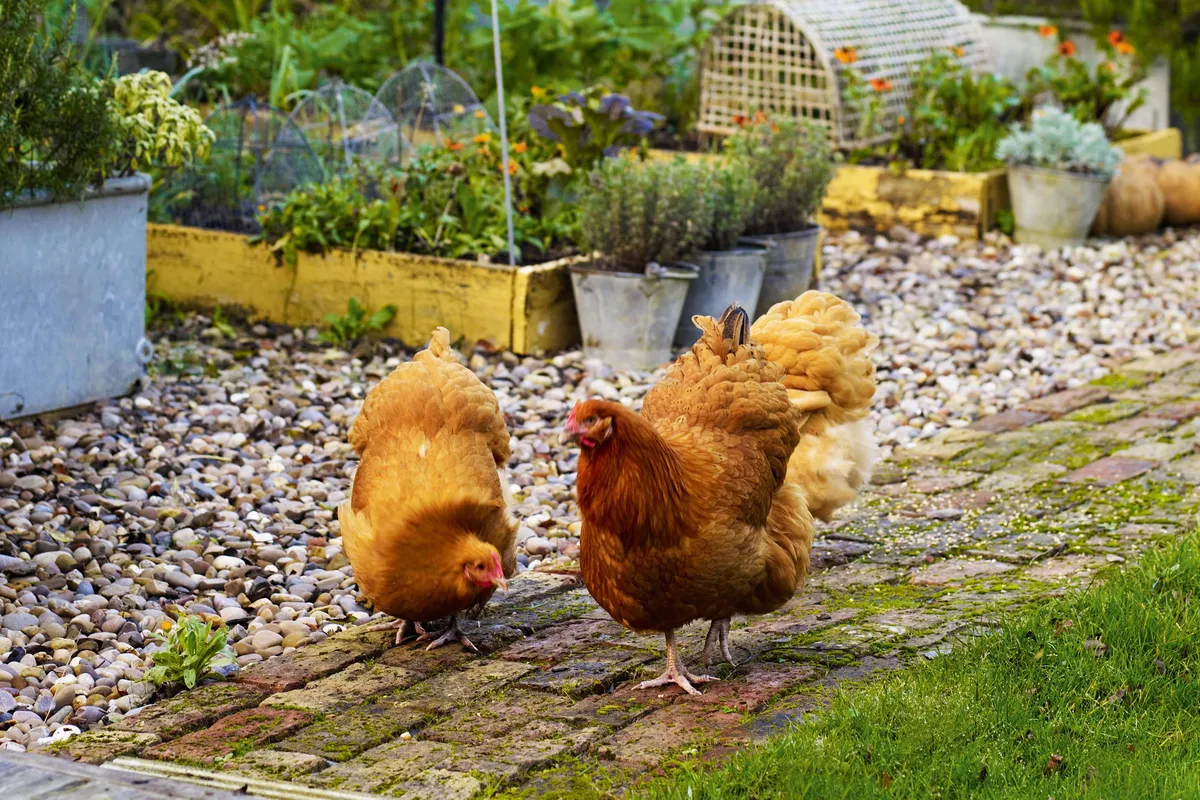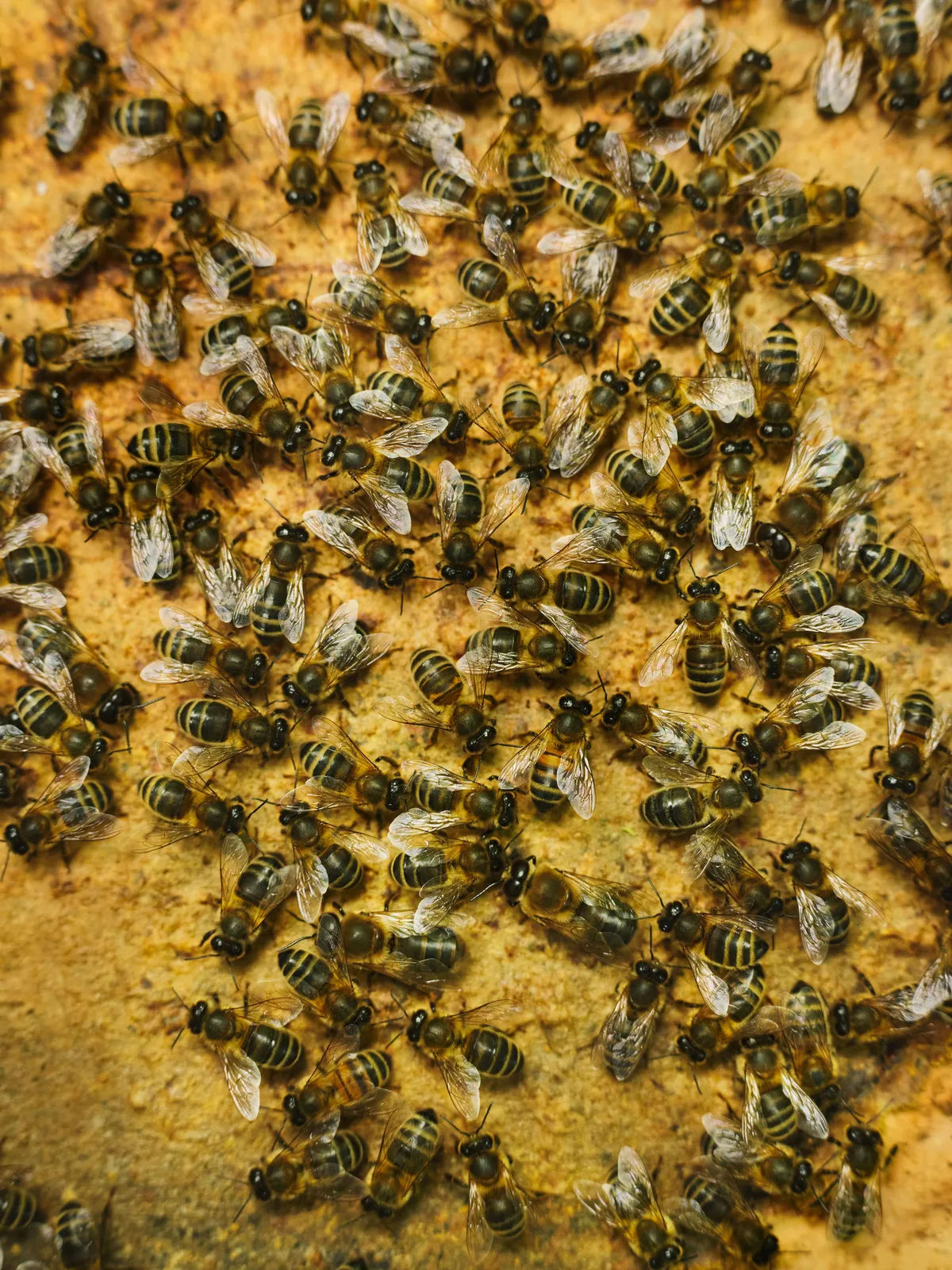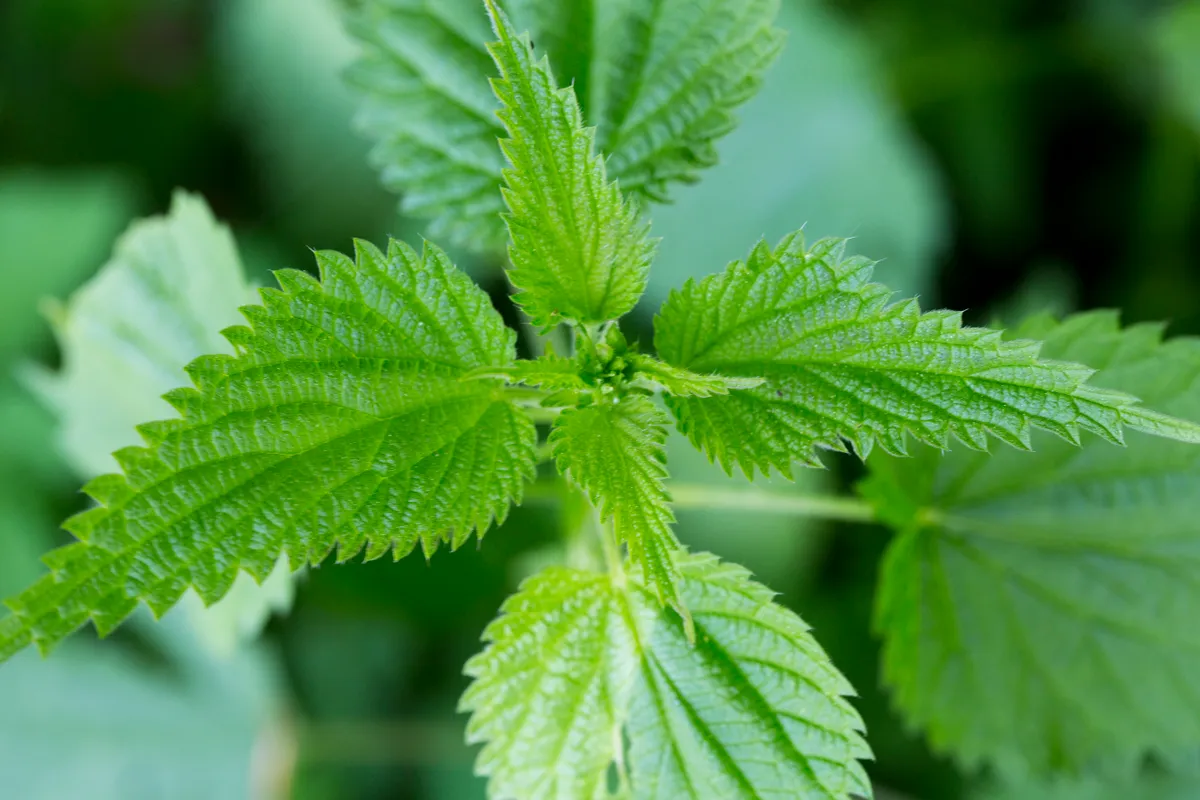Earliest gardening memory? Watching red admiral butterflies flutter on the buddleja bush with my mum in our back garden in
London when I was maybe 4 or 5, the heavy sweet scent of buddleja is quite nostalgic for me. Another would be collecting buckets of snails around the same age, I thought they were cute then and I still do now… Pesky but like docile slidy soil cows!
First plant love? I think that would be the first squash I grew. It was in a huge pot on the deck of our canal boat when I lived in London in my early 20s. I was totally blown away by how fast it grew, I became quite obsessed with that squash, tracking its growth by taking photos nearly daily! I bought it as a baby from a community garden and they had mislabeled it, so when it finally came to fruiting I was expecting butternut but instead I got a crown prince. I hadn't really learned about varieties back then so that came as quite a surprise.

What did you do before gardening and what was your calling? I worked in fashion as a model for about 7 years. I found the fashion industry exhausting, I was also learning more about the climate crisis and the role fashion plays in it, there came a point I felt I needed and really wanted to change careers towards something that was both good for me, others and the earth. Practicing, writing and talking on ecological food growing seemed to tick all the boxes, so I started learning and gaining experience. I found there was so much medicine in good food growing, in the very wise words of Robin Wall Kimmerer “People often ask me what one thing I would recommend to restore relationship between land and people. My answer is almost always, “Plant a garden.” It's good for the health of the earth and it's good for the health of people.”
Horticultural heroes? I love, love, love Masanobu Fukuoka’s books on natural farming, Sowing Seeds in the Desert is brilliant and so important in our time. Vandana Shiva is technically not a horticulturist but her work as an environmental activist, food sovereignty advocate and ecofeministis is so very central to my understanding of the power behind growing food and so horticulture.
All the women in my family are 100 per cent gardening heroes too, my grandma was known to me as “Grandma with the Nice Garden” for my whole childhood! During a challenging period in our lives my siblings and I dug a pond with mum, a frog came to live in it, she started a compost heap, a little no dig veg patch and let the lawn turn into a meadow. I’d come home from school and make my friends cheese and lettuce sandwiches, my mum exposing us to all that makes her a gardening hero for sure. My late mother-in-law too, she gave me so many brilliant books on gardening we now have chickens in our garden to help manage pests, she used to keep ducks for the same purpose.

Favourite landscape that has influenced you The forest garden in Aurovile, India. It was incredibly inspiring visiting a project that was producing lots of nutritious, perennial food in a way that was good for the land and the local people. It was productive, functional and oh so beautiful.
Three most worthwhile tips for every gardener The first has got to be to care for the soil, soil is the foundation to a healthy growing space. Caring for soil by increasing organic matter content also sequesters carbon. Don't expect to entirely eliminate a pest or weed, instead aim for it to exist at a tolerable level. It makes for a much less combative gardening experience! This great phrase used in permaculture demonstrates problem-solving in an ecological garden: “You don't have a slug problem, you have a duck problem” (ducks love to eat snails). In other words, focus on encouraging a functioning ecosystem with plenty of diversity and predators present to create a healthy garden.

Favourite planting style? I love cottage gardens, firstly they are just pure beauty! But there is also something so exciting about how they were originally rooted in a very sustainable ethos. For a garden to be sustainable it needs to be considerate of context and place, traditionally cottage gardens varied from place to place depending on the local climate, resources and plants. Beauty meeting productivity is a combination that I find very exciting, traditional cottage gardens were both these things! They usually featured perennial plantings such as little orchards or fruit bushes, there was a focus on food and herbs (including strewing herbs for cleaning! Try growing Sweet Woodruff if you’re curious about strewing!). Diversity was woven in with wild-looking native flower plantings and livestock like chickens or bees and local materials were used. Before the advent of widespread use of herbicides and pesticides following WWII, of course, they would have been organic by default. To me, all of this makes the cottage garden a space that beautifully invites us to engage with the living world (aka nature).
Favourite ‘weed’ you’re happy to have in your garden Nettles for how infinitely useful they are! They are delicious, versatile in the kitchen, good for us, amazing for compost, brilliant for wildlife and they will grow in any tricky corners or in the shade. Dandelions for their joyful springtime beauty… they are possibly in my top three favorite flowers! And their clocks are just pure magic when en mass. I really don't know how they managed to make the weed list in the first place! I could watch bumble bees visit their sunny faces for hours. I use both nettles and dandelions medicinally too.

Biggest challenge facing gardeners today The climate crisis. Our gardens will have to adapt to altered weather patterns which will bring shifted pest and disease pressures alongside transitioning to becoming spaces that are genuinely sustainable, productive or useful. Gardens in Britain cover an estimated 10 million acres; an area greater than all of our nature reserves combined and just under half the utilised agricultural land. As isolated islands, our gardens may be small, but when viewed en mass they become a patchwork quilt of opportunity. There is so much potential for gardens to allow us to shift from the roll of “the consumer” to
creator by growing food, flowers, herbs even fiber or dye stuffs (even if it’s just a little). Our gardens can become a network of safe heavens for biodiversity and help to reconnect us to the living world, and each other… growing food together seems to have an uncanny ability to forge a strong sense of comradery!
One easy thing that every gardener can do to be more sustainable in their gardening I don't have one easy thing, I have 10 easy things!
1) Go organic
2) Go peat free
3) Make compost and use it!
4) Go no dig or minimum till
5) Grow food (explore edible perennials!)
6) Have a pond
7) Reduce the flow of external resources into our gardens and when things do come in op for reused items and local resources.
8) Harvest rainwater and use grey water in your gardens, the water that runs from our taps in the UK has gone through a highly energy-intensive process to make it clean enough to drink.
9) Buy seed from organic, ethical, local suppliers
10) Share our space and produce with others
What principles have guided your attitude to gardening? I’m very influenced by permaculture design, which became a gateway to understanding various indigenous techniques of growing harmoniously with the land. I'm also influenced by biodynamics, natural farming, no dig growing in general and forest gardening. I really enjoy learning so it's a constant process of adding new ideas to the collection and seeing how they fit! My approach to growing is very light touch. I allow pockets of “wild” to emerge and very much love to welcome “wild” or “weedy” plants into the garden like ragwort and wild garlic. I will generally grow in polyculture with an emphasis on companion planting and keep the ground covered at all times, whether with wood chips from pruning, compost or vegetation. I’m very inspired by how both wild and semi-wild spaces (like hedgerows) function healthy and sustainably with minimal input or intervention. I like to think of myself as a garden assistant, the garden knows where it wants to go, I just help guide it and encourage it to thrive!
In what direction do you see horticulture heading in the next few years? I think more and more people are being drawn to horticulture from an angle of radical care, care for one's self, others, and the earth. It is a fantastic way of meaningly engaging with the living world. I think so many people, myself included, see real solutions to some of our big problems in ecological growing, from our mental health and climate crisis through to biodiversity decline, access to good food and so much more. I think we will see an exploration of the power in connection to land, one another and the significance this plays in tackling the climate crisis more and more. After all if we love nature we will want to care for it… and in so doing we care food ourselves.
Favourite gardening blogs, instragram feeds or books?
For beautiful and powerful writing on gardening:
● The Well Gardened Mind by Sue Stuart-Smith
● Braiding Sweet Grass by Robin Wall Kimmerer
● Unearthed by Claire Ratinon
For practical tips:
● Growing Beans- A Diet For Healthy People and Planet by Susan Young
● Eat What You Grow by Alys Fowler & Creating A Forest Graden by Martin Crawford
● Gaias Garden- A Guide to Home scale Permaculture by Toby Hemenway
● Easy Grow by Anna Greenland
IG accounts that I keep going back to and learn lots from:
@StephanieHafferty
@alysf
@jackfirst42
@finchandfolly
What’s the next big project/seasonal task you’ll be tackling in the garden? I want to complete planting up the edible and medicinal perennial border which will be full of “edimentals” and “medimentals” (if we can have that as a word? Medicinal ornamentals!). Plants like echinacea, whose root is a great anti-viral, feverfew for headaches and sage for use in the kitchen but also because it's great for coughs and sore throats.
How do you remind yourself what needs doing next –so you don’t miss anything I keep a bullet journal where I organise everything in my life from what time I need to have breakfast to when I need to turn the compost heap! I am lost without it!
Do you have a particular aim in your gardening career that you’d really like to achieve? I’d love one day to own a piece of land where I run workshops alongside others in small-scale ecological growing and other land based skills and crafts, with a real focus on access for young black kids to get involved and learn on the land. That's the dream!
@poppyokotcha on Instagram or www.poppyokotcha.com
Here's Poppy on organic slug control
Poppy appeared in October's issue of Gardens Illustrated. Subscribe here
In her first online course with Create Academy horticulturist Poppy Okotcha shows how to garden in harmony with nature throughout the seasons, giving step-by-step advice on how a low intervention and mindful approach to gardening can make for healthier soil, better produce and at the same time promote biodiversity.